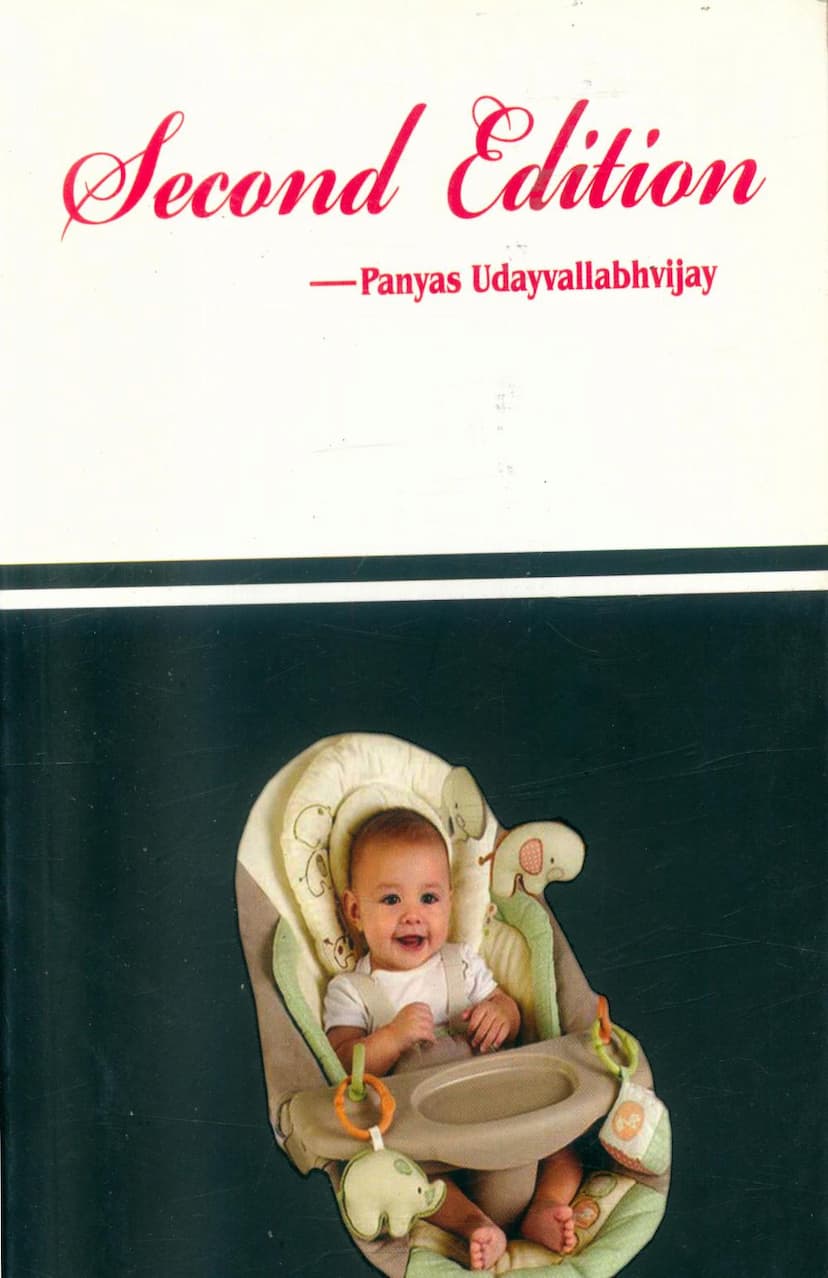Second Edition
Added to library: September 2, 2025

Summary
This book, "A Round Map for Effective Parenting," by Panyas Udayvallabhvijay, is the second edition of a work originally published in Gujarati. The author aims to provide parents and guardians with guidance on raising children, drawing upon traditional principles, scriptures, scientific reasoning, and psychological insights.
The book emphasizes that home is the first school and a crucial university for a child's development. The author believes that the current generation's education is weakened and seeks to offer solutions for balanced upbringing. He acknowledges the contributions of Acharya Shri Muktivallabhsuriji and his brother, Panyas Hridayvallabhvijay, in the creation of this work.
The Index reveals the comprehensive coverage of topics related to parenting, including:
- Embellishment: Human's Monopoly: This chapter highlights the unique human capacity for art and refinement, distinguishing humans from animals. It suggests that this ability to "embellish" applies to all aspects of life, including actions and communication, and that harnessing this for spiritual growth is paramount.
- Seed, Earth and Environment: This section delves into the interplay of past karma, present circumstances, and individual effort in shaping a child's destiny. It draws parallels between a seed's potential and a child's inherent capabilities, stressing the importance of the right environment and guidance. The chapter also cautions against the negative influences of media and literature on a child's developing psyche.
- Season of Nurturing: This chapter focuses on the critical early years of a child's life and the impact of parental actions and encouragement. It uses analogies to illustrate how early habits and influences shape future behavior, emphasizing the need for vigilance and proactive guidance from parents. The author advocates for parental engagement and suggests techniques like storytelling and leading by example.
- Upbringing in the Embryo Stage: Science of Conception of Child Prodigy: This chapter emphasizes the profound impact of the mother's physical and mental well-being during pregnancy on the developing child. It draws from Jain scriptures and scientific research to highlight the importance of a healthy lifestyle, positive thoughts, and spiritual practices for the expectant mother, asserting that the prenatal period is a crucial window for character development.
- Evaporation of Emotional Support: This chapter addresses the critical need for parental emotional support and quality time. It criticizes the trend of materialistic parenting where children are provided with material possessions but lack emotional connection. The author argues that such neglect leads to emotional void and alienation, making children feel like "orphans in wealthy homes."
- Father: Tense, Busy and Rosy: This chapter categorizes fathers into three types: Tense, Busy, and Rosy. It emphasizes that a "Rosy Father" is one who balances time, love, and discipline effectively, fostering a strong and loving bond with their children. The chapter explores the concept of "Bhim Guna" (discipline and oversight) and "Kant Guna" (attraction and affection) in fatherhood.
- Discipline: Protecting Personality: This chapter argues that discipline is essential for a child's personality development and security, not a restriction of freedom. It highlights the dangers of excessive freedom without discipline and cautions against modern societal trends that undermine parental authority. The author stresses the importance of setting limits and guiding children toward responsible behavior.
- Control Has to Be Kept Under Control: This chapter emphasizes the need for parents to exercise control over their own behavior and emotions while guiding their children. It warns against violence and harshness, advocating for patience, understanding, and a healthy mentality in parenting. The author stresses that the parent-child relationship is built on trust and mutual respect.
- Wealth Worth Given as Legacy: This chapter discusses the concept of heredity and the powerful influence of parental example on children. It stresses that children learn more from what they see than what they are told and that parents must be mindful of their speech, actions, and values. The author cautions against passing on negative habits and vices to children.
- Child: After All a Child!: This chapter focuses on understanding child psychology and acknowledging the developmental limitations of children. It advises parents to be patient and reasonable, recognizing that children express emotions differently and have different capacities for understanding.
- Missing!: This chapter highlights the crucial need for parental availability and approachability. It criticizes the trend of "missing parents" who are physically present but emotionally absent, leading to children seeking validation and attention elsewhere. The author emphasizes the importance of family meals and open communication.
- Upbringing Speaks for Itself: This chapter underscores the role of character and temperament development in a child's life. It stresses that parents are responsible for instilling positive values and nurturing a child's personality through consistent effort and guidance.
- Child Upbringing: A Jewel of Family Culture: This chapter celebrates the importance of familial love and traditional Indian family values. It contrasts this with Western lifestyles that may lack the emphasis on close-knit family bonds. The author suggests that preserving these values is crucial for a virtuous society.
- Family Insurance: This concluding chapter, using the metaphor of insurance, emphasizes the importance of mental peace and a balanced mind for a happy and fulfilling life. It reiterates that parental responsibility is key to a child's development and a secure future, urging parents to be vigilant in nurturing their children's character.
Overall, the book is a comprehensive guide advocating for conscious, loving, and disciplined parenting, rooted in traditional values and an understanding of child psychology. It encourages parents to be active participants in their children's lives, shaping them into well-rounded, virtuous individuals.